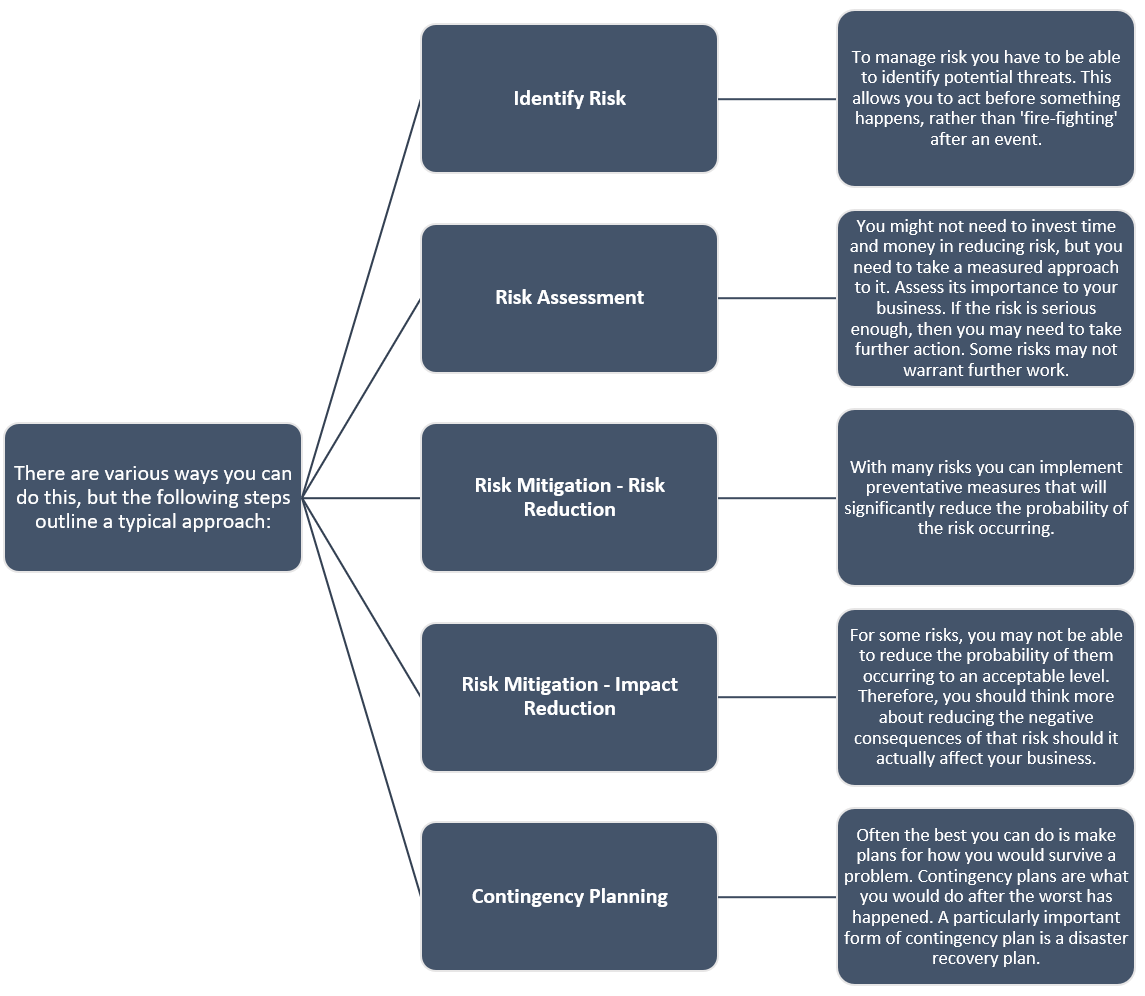A contingency plan is a plan devised for an outcome other than in the usual (expected) plan.
A contingency plan is devised to respond to a negative event that can tarnish a company’s reputation or even financial livelihood.
A contingency plan is a plan devised for an outcome other than in the usual plan. It is often used for risk management for an exceptional risk that, though unlikely, would have catastrophic consequences. The contingency plan is a proactive strategy, set up to account for those disruptive events, so you’re prepared if and when they arrive.
While any organization is going to plan for its product or service to work successfully in the marketplace, that marketplace is anything but stable. Unpredictability might be the enemy of business, but that doesn’t mean that it doesn’t exist. To execute a plan believing you can avoid unpredictability may be fatal to your organization’s future.
Risk management should be seen as an ongoing process rather than a one-off procedure that you apply to an individual threat. You should continuously reassess threats and actively search for new ones. Risk management is a structured way of controlling risk.

A contingency plan is an impact-reduction measure. It should describe in detail what you and your staff will do if a particular problem occurs.